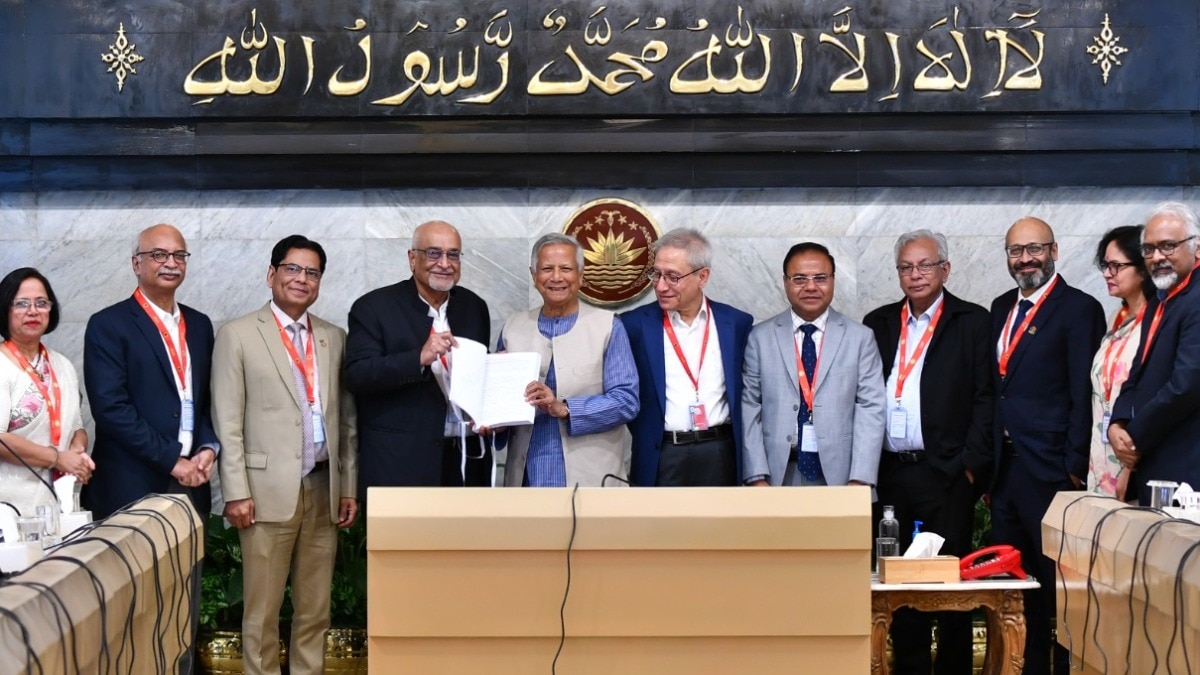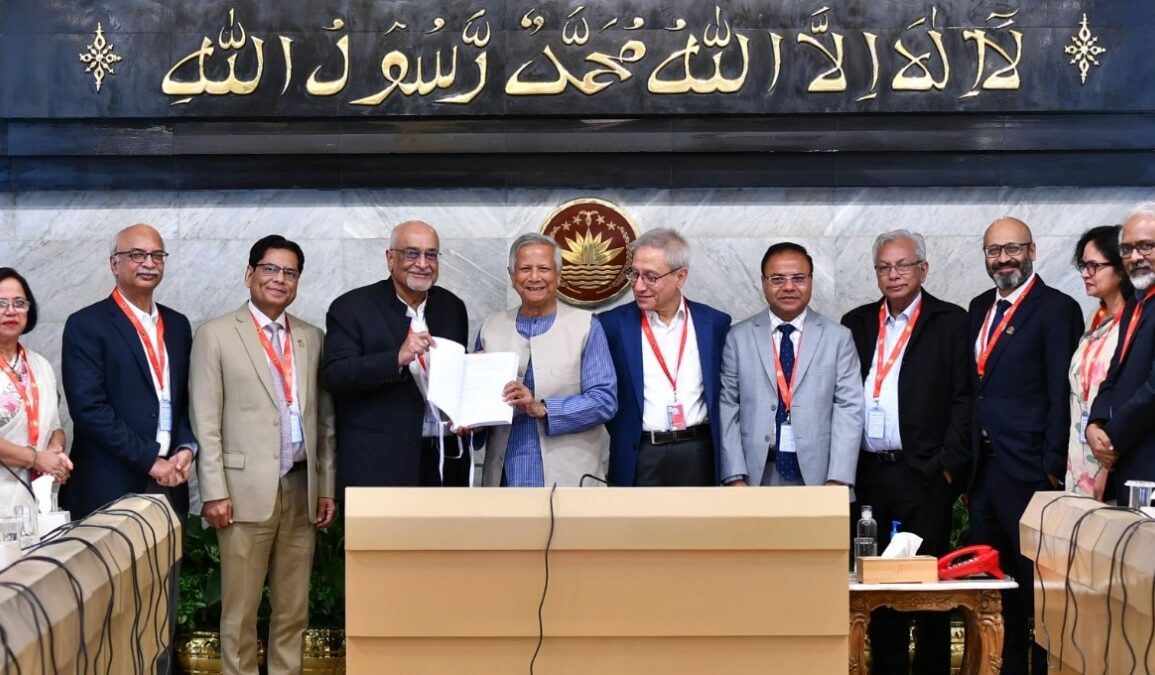
A white paper submitted to the caretaker government of Bangladesh claims $234 billion was siphoned off from Bangladesh during the rule of ousted Prime Minister Sheikh Hasina, and some of the money was routed through and to India. The white paper is seen as an attempt by the Muhammad Yunus-led government to show that it inherited a tattered economy.
“It will show us the economy we inherited after the July-August mass uprising,” Yunus said while receiving the report from Debapriya Bhattacharya, the chairman of the committee tasked with finding the status of Bangladesh’s economy.
advertisement
Several Bangladeshi media outlets on Monday reported on the contents of the white paper, which was presented to Yunus. The report, called the ‘White Paper on State of Bangladesh Economy’ will be made public on Monday, December 2.
The $234 billion was laundered to or routed via India, the UAE, the UK, Canada, the US, Hong Kong, Malaysia, Singapore, and other tax havens. The money was laundered between 2009 and 2023, when a Hasina-led Awami League government was in power, The Daily Star reported, citing the white paper.
Up to $24 billion of the $60 billion invested in the Annual Development Programme and other development projects during the Hasina regime “has been lost to political extortion, bribery and inflated budgets”, the Dhaka-based The Business Standard quoted sources on the white paper committee as saying.
The white paper on economy also revealed that construction costs of infrastructure projects in Bangladesh are substantially higher than those of regional counterparts, including India, yet the quality of infrastructure is comparatively lower, according to a report on the Dhaka-based The Business Standard.
The committee was set up on August 28, and was tasked with giving a clear picture of Bangladesh’s economy during the Hasina regime, which opposition leaders have been accusing of rampant corruption and crony capitalism.
The committee that authored the white paper was led by economist Debapriya Bhattacharya. He is also a distinguished fellow of the Dhaka-based think tank Centre for Policy Dialogue, according to a Daily Star report.
The white paper revealed that the banking sector was the worst hit among all other sectors that the committee looked into. The Dhaka-based Business Standard also reported that 10 banks were “technically bankrupt and illiquid”.
“We chose 10 distressed banks to dig into their solvency and liquidity. Of the 10 banks, two are state-owned banks that were mostly hit by scams in the last decade,” it said, quoting parts of the white paper. “The other eight are extremely weak shariah-based banks and conventional private commercial banks.”
Sheikh Hasina fled Bangladesh on August 5, after a month’s protest that saw hundreds dead.
What started as an anti-quota agitation by students turned into a nationwide protest demanding that Hasina resign from the prime minister’s post.
Hasina is presently in a safehouse in New Delhi.
Bangladesh descended into weeks of chaos after the fall of the Hasina regime, and witnessed targeted attacks on minorities, including Hindus.
The military-backed Yunus government is trying to bring some semblance of law and order in Bangladesh, where students, who have got a taste of street protests, are acting as paramilitary personnel.
Bangladesh had developed economically during the 15 years of the Hasina regime, especially on the back of a robust garment industry. Millions were pulled out of poverty.
However, elements of the Awami League and Hasina’s close circle were accused of blatant corruption and siphoning off money.
This post was originally published on this site be sure to check out more of their content.







